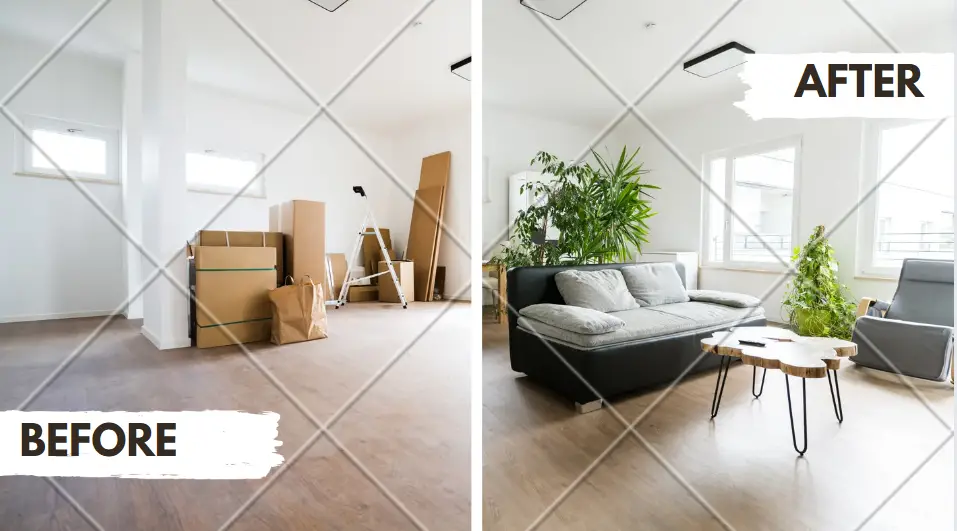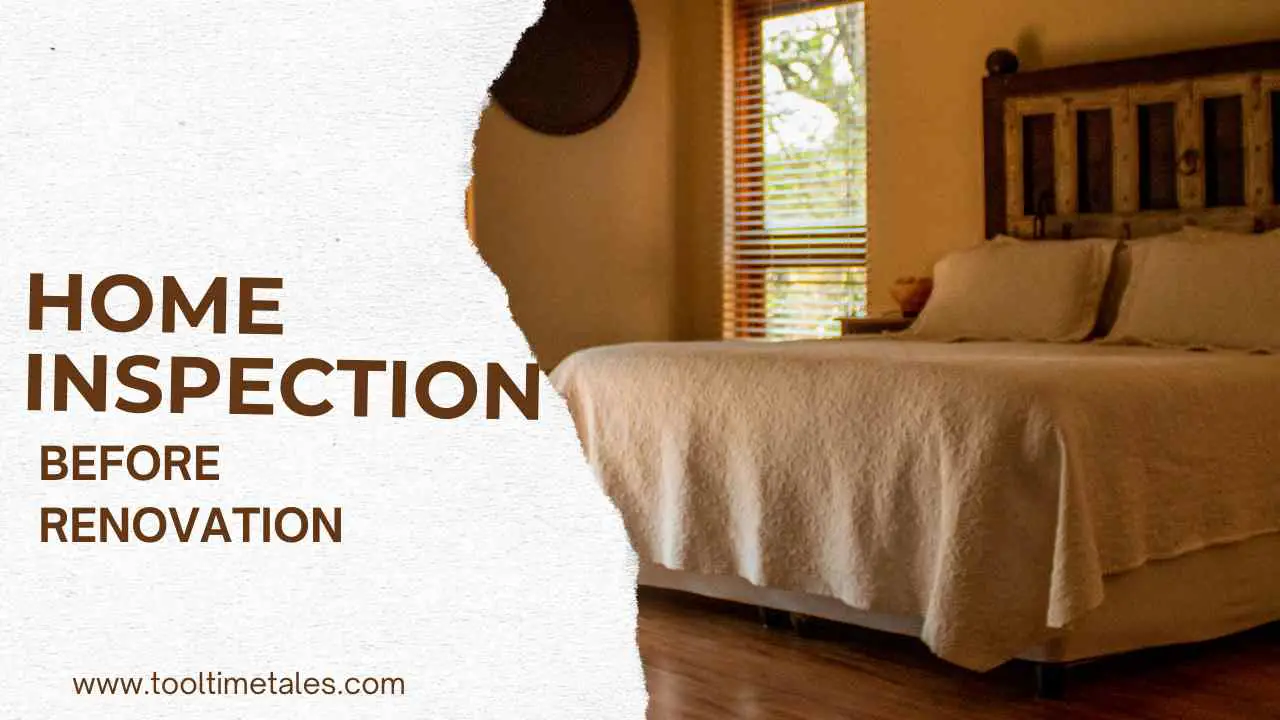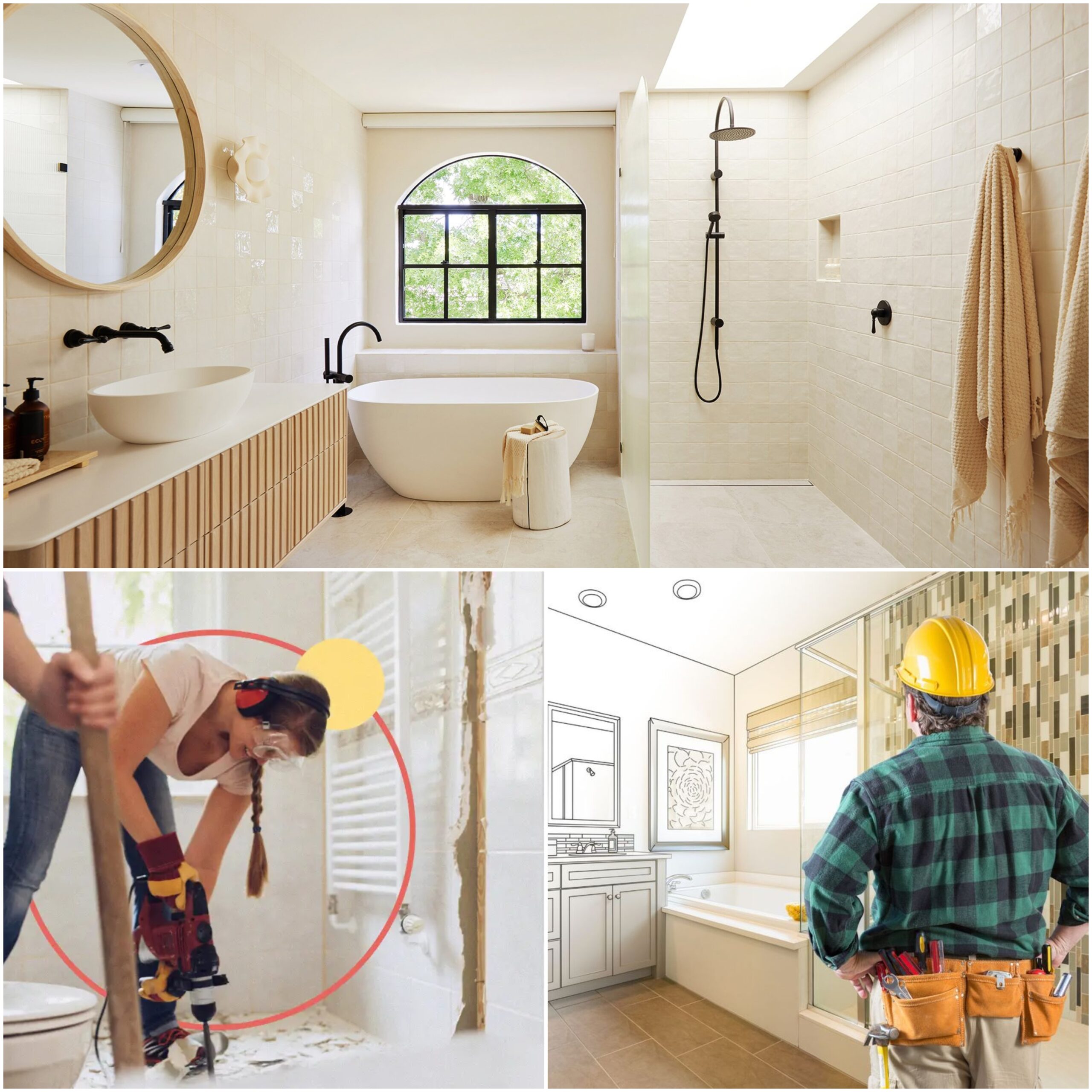A home inspection before renovation checklist is your secret weapon for a successful and smooth home improvement. While renovating is exciting, making decisions in a hurry can be dangerous. Unexpected problems that can ruin your project include outdated systems, structural flaws, or even violations of regulations.
Let’s focus on the benefits of a pre-renovation inspection and how it can allow you to make decisions and make changes to your house confidently.
Home Inspection Before Renovation
What is a home inspection?
A complete evaluation of a residential property is carried out by a certified specialist called a home inspector.
An in-depth and independent analysis of the condition of the house is the main goal of a home inspection, helping in the decision-making process for potential consumers, sellers, or homeowners.

Why get a home inspection before renovation?
1. Avoid surprise expenses
Before beginning the renovation process, having a pre-renovation inspection helps you find any hidden problems in your house. These might involve plumbing, electrical, or structural difficulties.
Early detection of these problems lets you include solutions in your renovation plan and save additional costs that might come up later in the project.
Throughout the renovation process, you can feel secure knowing that your budget will not be compromised because of this proactive approach. Any way best personal loans are available for your home renovations work.
2. Safety and following rules
A home inspection before renovation is necessary for detecting possible safety risks and guaranteeing that local construction regulations are being followed.
Older wiring, weak constructions, and other dangers that could threaten your family’s safety are just a few risk factors.
By taking care of these problems before renovations start, you will have a hassle-free and simple renovation by putting your home’s safety first and preventing legal penalties for violations of regulations.
3. Make smart choices
Making smart choices during the renovation process requires you to be aware of your home’s current state.
You may order renovations according to their priority and importance with the help of the inspection report, which will give you insights into the general condition of your property.
With this knowledge, you can make more effective use of your resources, concentrate on areas that really need work, and design a renovation that works for your needs and the state of your house.
4. Boost renovation quality
Before beginning the renovation, contractors are guaranteed to address any underlying issues by a pre-renovation inspection. This keeps issues from coming up again in the future and increases the project’s overall quality and longevity.
Addressing hidden problems, like leaks or structural flaws, sets the groundwork for a renovation that is more successful.
This method of home inspection before renovation adds to your home’s long-term usefulness and value in addition to improving its appearance.
When to schedule a home inspection?
1. Before purchasing a home
Older Homes:
Setting up a home inspection is especially important if you plan to buy an older house. Hidden problems in older homes could include old plumbing, electrical, or foundation problems.
Buyers can negotiate repairs or price adjustments and make accurate choices by using home inspection before renovation to help uncover possible issues.
Fixer-Uppers:
A home inspection is particularly important if you are thinking about purchasing a fixer-upper or a property that requires renovations.
Finding the size of the required repairs assures you to evaluate the property’s true cost, efficiently plan renovations, and keep clear of unexpected expenses.
2. After a seller accepts an offer
It is typical for buyers to arrange a home inspection as an emergency or use apps to search for foundation inspection near me once a seller accepts an offer.
This makes sure purchasers find out any unnoticed issues and deal for discounts or repairs before the sale is completed.
A home inspection before renovation provides the buyer a chance to reconsider or think about the purchase in light of the inspection results.
3. After moving into a new construction home
Inspections are beneficial even for newly constructed homes, despite common opinion. There might be problems with poor construction, unfinished work, or forgotten details.
Before the final tour, home inspection before renovation allows builders to address any issues and guarantee that the new homeowner moves into a well-built, problem-free home.
4. Regular home maintenance check
It is a good idea to schedule routine home inspections for maintenance even if you are not buying or selling.
Frequent inspections can save homeowners money in the long run by identifying and addressing minor issues before they become larger ones and maintaining the general condition of the property.
5. Before renovations or upgrades
It makes sense to arrange a home inspection before renovation if you believe in making major upgrades or renovations to your house.
This makes it easier to find any challenges that already exist and need to be fixed before the renovations begin.
It confirms that the remodeling project moves forward without difficulties and that secret problems are not missed.
What to expect during a home inspection?
An experienced building inspector carefully looks over the property to determine its general condition during foundation inspections. The procedure usually involves a physical inspection of all the systems and parts in and around the house.
What should be expected from a typical pre-inspection for home renovation checklist is as listed below,
1. Exterior Inspection
The inspector looks at the shape and condition of the roof, searching for indications of damage, missing roof shingles, as well as other problems.
Investigating the external materials for deterioration, damage, or indications of pest infestation is necessary for Siding and Trim.
Evaluation of the situation, functionality, and seals of windows and doors
They check the foundation for any structural issues, such as settling or cracks.
A potential drainage problem on the property should be measured through grading and landscaping.
2. Interior Inspection
The strength of the structure and any noticeable defects are examined by the inspector.
Reviewing toilets, sinks, faucets, and other plumbing fixtures
Considering electrical panels, outlets, as well as wiring to verify safety and compliance
Evaluation of the appliances included making sure proper operation
Checking these areas for possible problems with insulation, ventilation, and other aspects
Review living spaces, places to sleep, and additional rooms for any visible issues
3. Roofing System
Roof covering analyzing the kind and state of roofing materials
Drains and Gutters checking for functional and appropriate installation
4. Plumbing System
Testing of water supply lines and distribution in the house Analysis of drainage systems and venting to guarantee suitable operation
Evaluation of the water heating system’s functionality and status
5. Heating, Ventilation, and Air Conditioning (HVAC) Systems
Examination of the HVAC systems’ performance, efficiency, and air quality
Check ducts for correct installation and any indications of damage or challenges
6. Electrical System
Home inspection before renovation helps a lot in checking the electrical panels, outlets, and wiring for legality and security
Lighting fixtures should be inspected to ensure correct installation and operation.
7. Insulation and Ventilation
Testing of insulation supplies and how well they work
Check for sufficient air circulation by inspecting the ventilation in the basement and the attic area
8. Overall Safety Check
Along with looking for safety concerns, the inspector will also check for things like smoke along with carbon monoxide detectors, handrails on stairs, and the property’s overall safety.
They also provide an in-depth report after the inspection that includes recommendations, necessary repairs, and a list of any areas of concern.
To make accurate choices about the new house handover inspection or property, this report is a valuable resource for homeowners, sellers, and buyers.
Frequently Asked Questions
How to choose the right home inspector before renovation?
When wondering to select a home renovation near me, then select an inspector with experience in your type of property who is certified and licensed. Look at reviews, request sample reports, and emphasize quality rather than price.
What to do before an inspector comes to your house?
Organize your house so that the inspector can easily access every area and perform a full inspection of the property. Collect the necessary records, including maintenance logs and any paperwork about recent repairs, so that you may provide the inspector with important information.
Can a home inspector inspect commercial?
Home inspectors typically focus on residential properties; however, their expertise may differ for commercial properties. Hiring a certified commercial property inspector with knowledge of mobile home renovation ideas and checking the unique challenges connected to commercial buildings is a good idea.
When not to renovate a house?
Renovating should be avoided if it is going to stress your finances or if you plan on selling soon. Major renovations should also be revised in the case of serious structural problems or unstable market conditions.
How often should you redo your house?
Renovations may be necessary when your home requires updates for safety, performance, or decorative purposes, though there is no set timeframe for them. For pre-renovation home inspection USA location, check every ten to fifteen years or earlier if particular problems occur.
Bottom Line
It is a smart move to choose to have a home inspection before renovation. This starting point not only identifies possible problems in your house but also builds the groundwork for a more efficient and experienced renovation process.
By predicting structural problems, safety hazards, or required repairs, you can make sensible choices, prevent unexpected obstacles, as well as confirm an efficient and financially successful renovation process.











